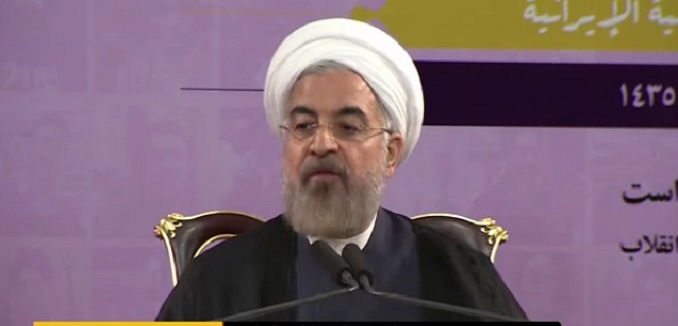The Wall Street Journal on Friday afternoon announced that Iran and the P5+1 global powers had reached an agreement to extend through late November talks over Tehran’s nuclear program. The interim Joint Plan of Action (JPA) was set to expire July 20, amid increasing speculation that talks would be extended as a comprehensive deal had not yet been reached:
Iran agreed to new steps to contain its nuclear work in exchange for additional sanctions relief from the U.S. as the two sides extended negotiations for four more months to reach a comprehensive deal.
Under Friday’s deal, the U.S. will give Tehran access over the next four months to an additional $2.8 billion in oil export revenues frozen abroad by American sanctions, Secretary of State John Kerry said.
Among the core issues that require progress is Iran’s continuing ballistic missile development. A range of analysts and officials this week unpacked a recent Pentagon report on Iranian military capabilities, with a general consensus emerging that the Islamic republic remains on track to produce an intercontinental ballistic missile (ICBM) by 2015.
American Foreign Policy Council Vice President Ilan Berman on Friday warned of “the Iranian regime’s intent to become a global missile power” as it negotiates with the P5+1 over its nuclear program, noting that while Tehran is engaging in talks with the West, “it is simultaneously arming for regional dominance”:
In recent years, the Islamic Republic has made heavy investments in both its ballistic missile and its space programs — technologies that, if fused together, would allow the regime to rapidly field an ICBM. The Iranian government, moreover, has consistently rejected any constraints on its ballistic missile capabilities as part of negotiations with the P5+1 powers. The message is clear: Iran sees missiles as inextricably linked to its global status, and isn’t willing to give up on either.
Reuters last year conveyed analyst concerns to the effect that Iran’s space program is being used by the Iranian military to develop and hone delivery systems capable of carrying nuclear warheads.
Defense Intelligence Agency Director Lt. Gen. Michael Flynn had in February testified before the Senate Armed Services Committee that Iran was on track for testing its ICBM capabilities as early as 2015, and Rep. Mike Rogers (R-Ala.) earlier this month called predictions that Tehran Iran might well be able to field a working ICBM by next year an “unchanging fact.”
Peter Huessy, a senior fellow at AFPC, on Friday assessed that the Iranian “ballistic missile threat combined with its clandestine nuclear program gives the Free World a problem.”
[Photo: PressTV News Videos / YouTube]




